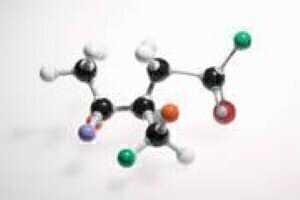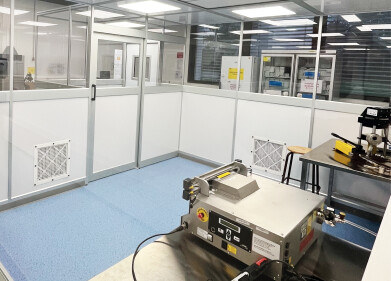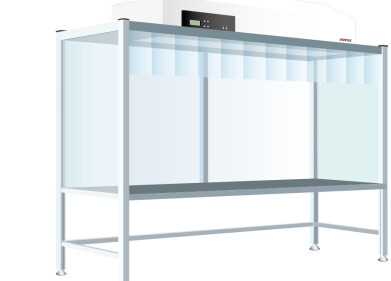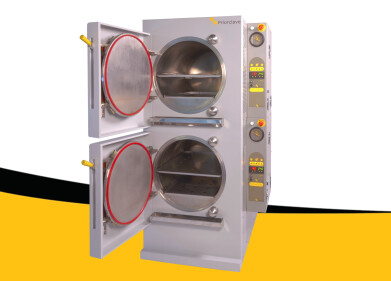Temperature Control / Sterilising
Process Thermostats for Professional External Temperature Control Broad Temperature Range and Rapid Temperature Change
Dec 16 2011
With their high heating, cooling and pumping capacities, Lauda Integral XT process thermostats establish a new dimension of temperature control in process technology from -90 to 300°C. The basic principle consists of a circulation thermostat with a very small internal volume and an expansion vessel with no through flow.
Integral XT 750 Process Thermostat with Glass Reactor
In the Integral XT, the thermally active heat carrier does not come into direct contact with the ambient air. The thermally uncoupled expansion vessel ensures volume equalisation in the case of temperature changes. This functional principle has numerous advantages for the user:
• At low temperatures, the condensation of atmospheric humidity is minimised.
• The odour nuisance at high temperatures is reduced.
• Long standing times of the heat transfer liquid are guaranteed through low vaporisation and oxidation.
• Operation over a temperature range from -50 to 220°C can be realised with no change of media.
• Working above the combustion point of the heat transfer liquid is permitted if this is high enough above the temperaturein the expansion vessel (at least 25K according to DIN EN 61010-1).
All of this simplifies the temperature control process and is reflected in significantly reduced operating costs. Integral XT process thermostats are especially suitable for the external temperature control of reactors, mini plants and calorimeters as well as for temperature stress tests and simulations. The process thermostats are used wherever rapid temperature changes and high cooling and heating capacities are required.The Command remote control unit, which can be detached during operation and has a graphic LCD, allows easy and intuitive operation and quick changes of settings. With the software for adaptive control, which is integrated into the remote control unit, the control parameters can be automatically adjusted. This saves the time-consuming, manual calculation of parameters. The high-performance Variopump can be controlled in eight stages and it delivers a maximum pressure of 2.9 bar and a
flow rate of up to 45 l/min. Sealing problems are eliminated by the magnetic coupling of the pump and the electric motor. In addition to the RS-232/485 interface included in the Command as standard, the Integral XT thermostats offer two further insert spaces for interface modules.
The Integral XT range covers other performance and operating temperature ranges. Thermostats for the cryogenic range reach a minimum temperature of -90°C. High-temperature thermostats can be used for temperatures up to 300°C. The cooling capacities (at 20°C) range from 1.5 kW to 18.5 kW. For rapid heating, the devices are fitted with heaters, which deliver between 3.5 and 16 kW heating capacity. In the temperature and performance classes described, the process thermostat cooling machines are air or water-cooled. Lauda Integral XT process thermostats were launched onto the market in 2006. Since that time, the model range has undergone constant expansion. Three further thermostats have been added to the equipment range in 2011. Within the Integral equipment range, the XT 280 is the first aircooled device for very high performance requirements in the cryogenic range down to -80°C. The process thermostat works from -80 to 200°C. With a cooling capacity of 1.5 kW at 20°C and a 4 kW heating capacity, rapid temperature changes are possible with external applications. With cooling capacities from 5 kW to 5.4 kW, the Integral XT 550 and Integral XT 550 W models complement the equipment class for the temperature range between -50 and 200°C.
Digital Edition
Lab Asia 31.6 Dec 2024
December 2024
Chromatography Articles - Sustainable chromatography: Embracing software for greener methods Mass Spectrometry & Spectroscopy Articles - Solving industry challenges for phosphorus containi...
View all digital editions
Events
Jan 22 2025 Tokyo, Japan
Jan 22 2025 Birmingham, UK
Jan 25 2025 San Diego, CA, USA
Jan 27 2025 Dubai, UAE
Jan 29 2025 Tokyo, Japan

.jpg)

















